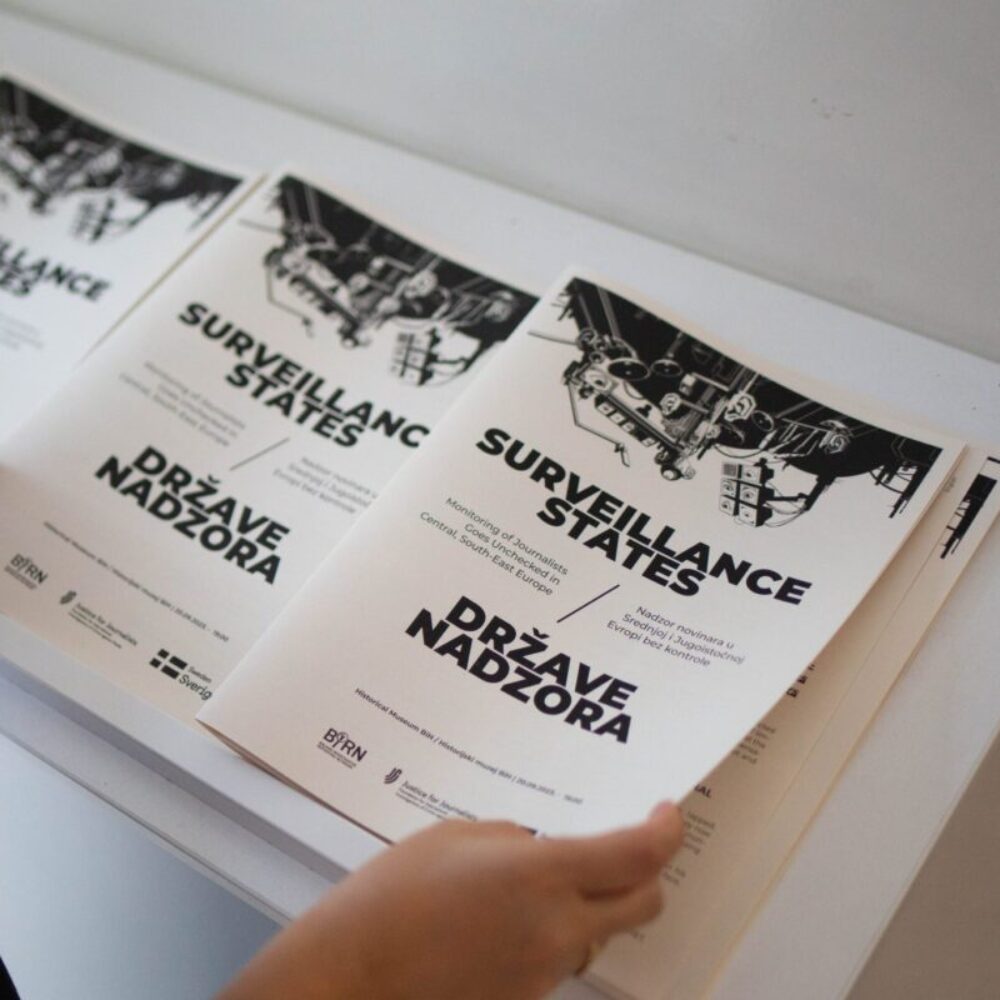THIS INVESTIGATION IS PART OF THE JUSTICE FOR JOURNALISTS FOUNDATION INVESTIGATIVE GRANT PROGRAMME AND WAS ORIGINALLY PUBLISHED BY THE BALKAN INSIGHT).
A new exhibition organised by BIRN in Sarajevo shows how journalists from the Communist era to the present day have been spied upon, bugged and wiretapped – and how illegal surveillance has rarely been sanctioned.
‘Surveillance States’, a multimedia exhibition based on BIRN’s extensive research into the covert monitoring of journalists in 15 countries in Central and South-East Europe, opened on Wednesday at the Historical Museum of Bosnia and Herzegovina in Sarajevo.
Organised by BIRN, the exhibition seeks to give a deeper insight into the surveillance of journalists from the authoritarian Communist period to the present day.
The exhibition includes video testimonies from journalists who have been the targets of surveillance in Albania, Bosnia and Herzegovina, Bulgaria, Croatia, the Czech Republic, Greece, Hungary, Kosovo, Moldova, North Macedonia, Poland, Romania, Serbia, Slovakia and Slovenia.
The journalists were monitored by security services and private individuals using a variety of methods – bugs in their homes and on telephone lines, watchers following them in the street, and new spyware technologies such as Pegasus.
The journalists’ accounts paint a picture of the personal impact of surveillance on their lives.
“[Surveillance] affected both my work and my personal life tremendously. I was scared for the people I talked to,” Stavros Malichoudis, a journalist from Greece, told BIRN in one of the interviews.
The interviews illustrate the impact of surveillance on the freedom of the media and democracy in general, and also highlight the struggles that journalists face when they attempt to seek justice for illegal surveillance.
“If there is no sanctioning of [illegal surveillance], this creates a precedent. It creates a feeling of impunity,” Mariana Rata, a journalist from Moldova, said in another of the interviews.
The exhibition will remain open to the public until October 8.
For more information about the project, see BIRN’s Surveillance States page.

